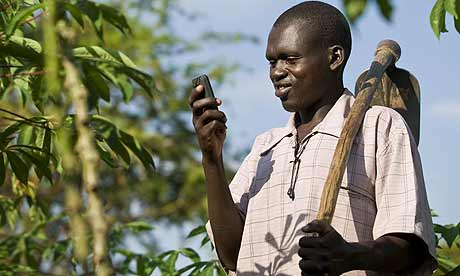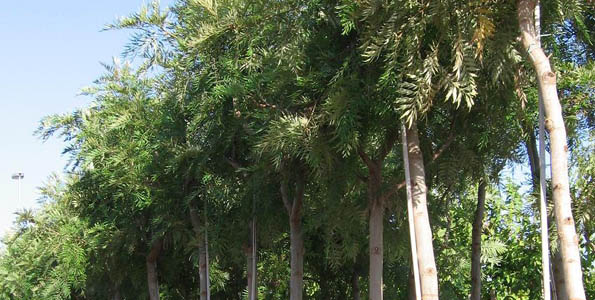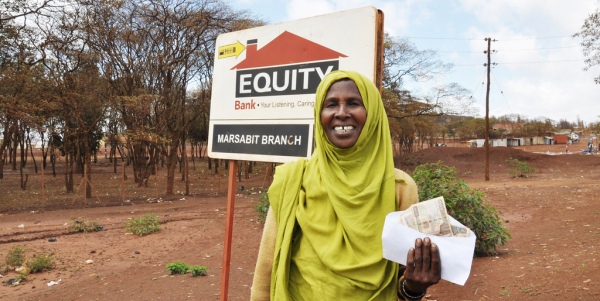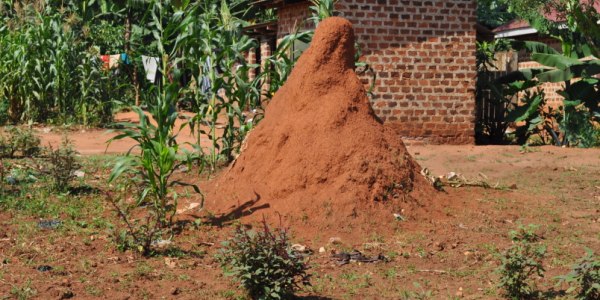Over 20,000 Kenyan Agripreneurs say they have increased yields by up to 30 per cent thanks to a simple text message service that is providing them with advice on crop management, fertiliser use and which maize varieties to plant, as a way beyond the difficulties in getting the attention of the limited government extension officers.
Established in 2011, E-Farming is run by the African Soil Information Service (AfSIS), a CIAT-led initiative, which has spent the last four years collecting and analysing thousands of soil samples in an effort to create a comprehensive soil map of sub-Saharan Africa. In its pilot phase, the text messaging service – run in conjunction with the Africa Soil Health Consortium led by CABI-Africa and Fibre Link Communications Ltd – is being assessed to see whether agronomic advice can be effectively disseminated to farmers via mobile phone.
When registering for the service through SMS, farmers are able to indicate their crop of interest and whether they want information on soils, fertiliser application, agronomy, markets or pesticide use. Farmers also have the option to send a separate SMS requesting specific information, to which AfSIS and Fibre Link Communications respond on an individual basis.
Over 1,600 farmers have subscribed to the trial, which aims to reach 50,000 farmers across Kenya by the end of 2012, in association with Kenya’s national farmers’ organisation. If successful, the service could be extended to include very precise, site-specific advice for boosting food production, based on the new AfSIS soil maps.
Each text message a farmer receives costs Sh10, and they receive, on average, three messages per month. While the cost is roughly thrice that of a standard text message in Kenya, the farmers are happy with the service, describing it as ‘affordable’ and highly effective: “I would urge other farmers to join,” said Jonah Were one of the farmers using the service, with this season’s maize crop towering several feet above him.
“Now, you can see what my shamba looks like; this service has helped me a lot to improve my production.” He even has suggestions for additional services: “I would request the AfSIS project to go further and tell us when the rainfall is due, where we can access farm inputs. and where to sell our harvests.”
Dr Peter Okoth, senior scientist at CIAT and AfSIS, explains why the scheme has become possible: “Three or four years ago, farmers in Kenya didn’t have mobile phones. Now almost every farmer or household in the country has one. You can buy a phone for as little as Sh800, thanks to low-cost handsets from China. It’s an unprecedented opportunity to reach farmers with important crop management information. Of course, the smart farmers will subscribe to the service, and then organise group meetings with their neighbours to share the information by word-of-mouth!”
But already farmers have reported that E-Farming has enabled them to purchase the correct seed and fertilisers, on time. As a result, many are expecting to double their maize yields.
An extra advantage of the service is that the information reaches farmers much more quickly than if an extension adviser had to visit each farm in person. This is particularly important when heavy rains make road travel in rural areas difficult.
Ambrose Ogwayo, an extension officer at the Ministry of Agriculture, was approached by AfSIS in 2011 to help recruit farmers in Gem District into the scheme. He has personally helped the service reach an additional 250 maize producers. “The farmers used to plant late, but now they plant on-time with the onset of the rains,” he explained. “From my observations, many more farmers would like to join the service.”
However, Ogwayo also believes the service has some limitations. “In many places farmers are illiterate and they would not be in a position to read most of the messages. Also, when there is no face-to-face contact, it becomes difficult for farmers to raise questions.” To address this, AfSIS is investigating the possibility of sending text messages in local languages, and is also looking at establishing a voice-activated advice hotline for farmers to call with specific questions.
Photo Courtesy of guardian.co.uk
 Fenesi.com Entrepreneurship Blog
Fenesi.com Entrepreneurship Blog




